The 5 best AWS Deployment Options to Consider in 2023
When we talk about various deployment and infrastructure provisioning choices on AWS, each option serves a particular set of users and needs. Some of Amazon's most common deployment services include Elastic Beanstalk, CloudFormation, and CodeDeploy. In containerization, there are options like ECS, EKS, Fargate, etc.

Morgan Perry
February 12, 2022 · 8 min read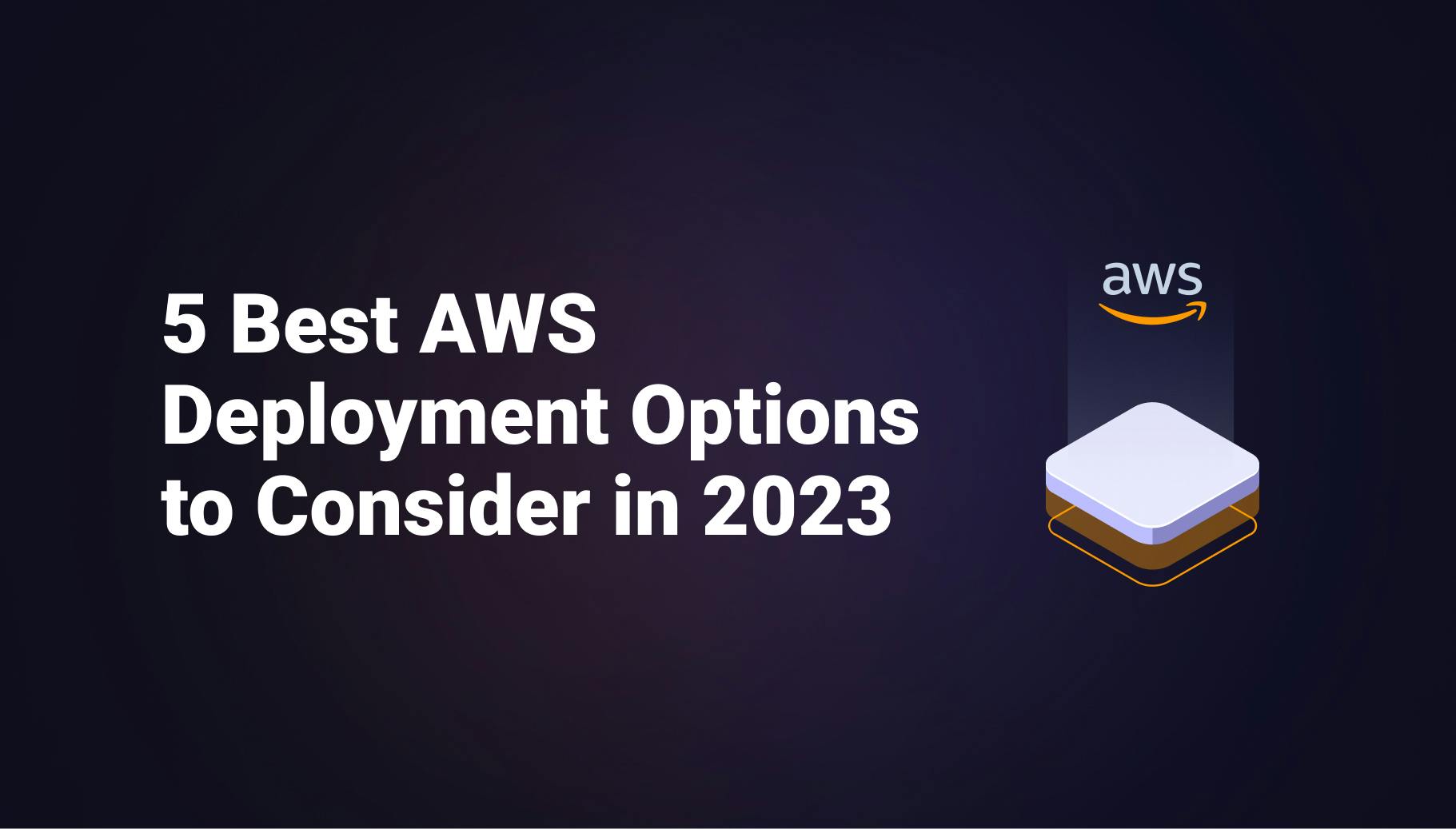
[Last updated on 07/26/2023]
The rapidly growing AWS services confuse users on making a decision related to their architecture. With 200+ fully-featured services (and more coming), it is difficult for someone to choose the best services for business. Take the example of virtual machines offered by AWS, called EC2. There are hundreds of instance types to choose from, and it is not easy to select one of them for your particular need.
This article will provide a thorough comparison between the top five choices (CloudFormation, Beanstalk, CodeDeploy, ECS, EKS) for AWS deployments. We will describe the pros and cons of each option and go through various factors that will help you choose the best option for your business.
#5 Best AWS Deployment Services
#AWS CloudFormation
CloudFormation is a service of AWS, through which you can create and manage the infrastructure of your software application hosted at AWS. Through CloudFormation, you can model a group of related resources such that they can be provisioned easily and consistently. As the resource creation is managed through JSON or YAML files, it is a form of IaC (Infrastructure as code).
You code your infrastructure so that your resources and deployment management can be automated. You can provision not only AWS resources but non-AWS resources as well. Through the YAML/JSON template, you tell CloudFormation what you want your environment to look like, and it will provide it accordingly.

#Advantages
Following are some of the major features of CloudFormation:
- Model Complete Infrastructure in one place: CloudFormation enables you to model your entire infrastructure and application resources in one text file. It provides a single source of truth for all your resources and allows you to standardize infrastructure components used in your organization.
- Automate & deploy: You can provision your application resources in a repeatable manner without the need to perform any manual action or custom scripting. Its templates are entirely reusable.
- No Extra Charges: You only pay for the resources managed through Cloud formation; there are no extra charges for using CloudFormation.
- Deployment Speed: you can deploy multiple resources almost instantaneously using just one template. This leads to much faster deployment as compared to manually setting up each deployment.
#Disadvantages
Although CloudFormation is a powerful tool, it has some pitfalls too.
- Steep learning curve: It takes a while to learn the syntax and code of CloudFormation templates.
- CloudFormation drifts: CloudFormation keeps a snapshot of the current state of your AWS infrastructure. If you make a change directly through your AWS console or your AWS CLI, your resources will be out of sync with the CloudFormation snapshot. This discrepancy is called drift and it can cause your deployments to fail.
- Lack of proper error descriptions: Error messages are often misleading, incorrect, or unclear.
#Amazon Elastic Beanstalk
AWS Elastic Beanstalk is a managed service through which you can deploy and scale your web applications and services. It is PaaS (platform as service) offering. It supports Python, Ruby, Java, .NET, PHP, Node.js, Go, and Docker. As it is a managed service, infrastructure and scalability are automatically handled.
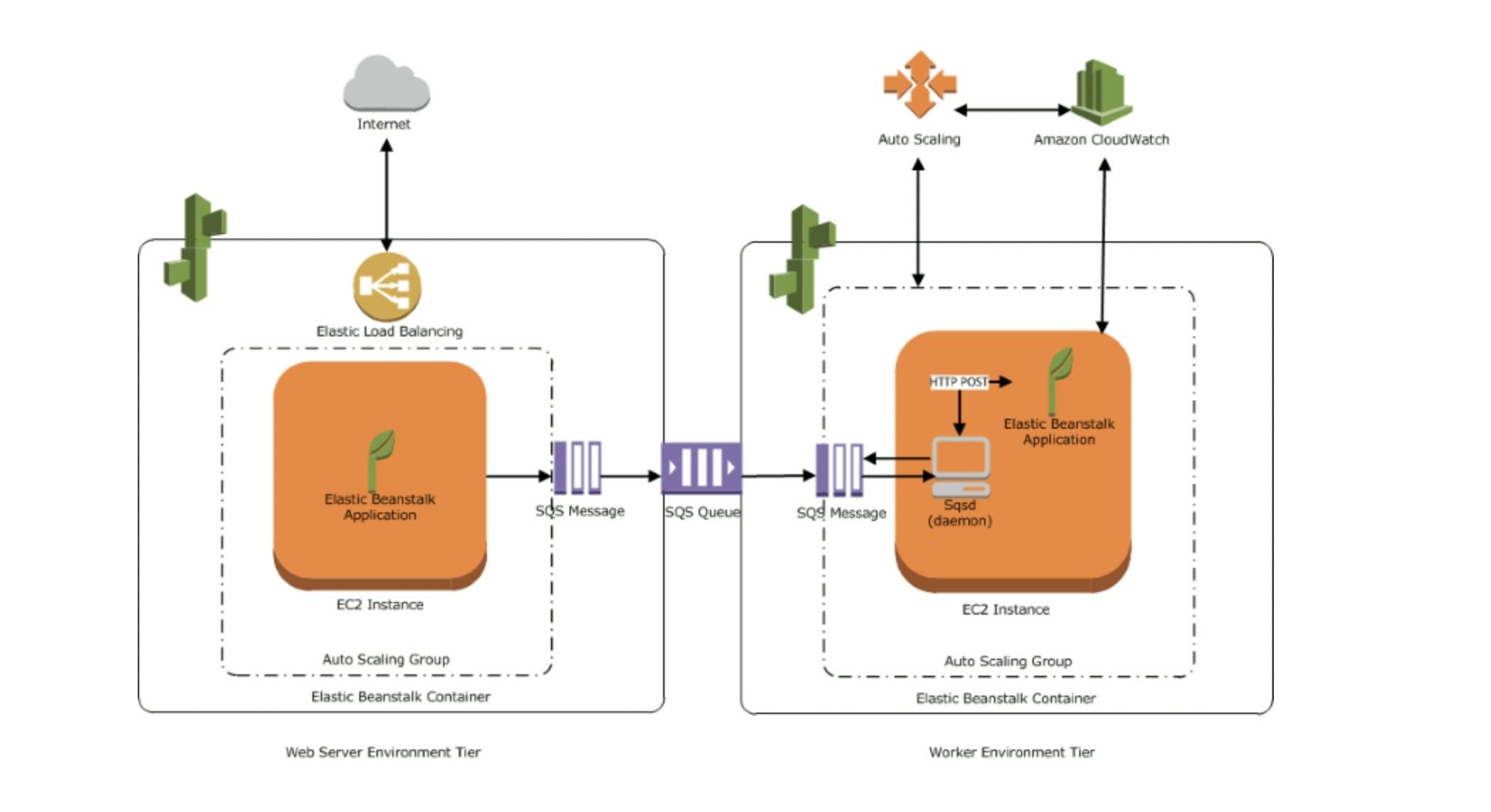
#Advantages
Following are the significant highlights of Elastic Beanstalk:
- Fast and easy to deploy: It is the quickest and easiest way to deploy your applications to AWS. All you need is the AWS Management Console, an IDE (like Visual Studio, Eclipse etc.), or a Git repository having your code. All the deployment operations like auto-scaling, load balancing, capacity provisioning, and monitoring will be handled by Elastic Beanstalk.
- Automatic scaling: It can utilize AWS’s dynamic and/or auto-scaling to scale in or scale out based on the threshold and resources’ health checks.
- Full control over the resources: Developers have complete control over the resources, and they can take manual control of the application’s infrastructure if needed.
#Disadvantages
Elastic Beanstalk is a great service; however, it has some limitations as well.
- Difficult to troubleshoot problems: When a deployment fails or some error occurs, it is difficult to see where the problem is.
- Slow deployment for large applications: For small applications, deployments are fast. But for applications having multiple components, load balancers, EC2 servers, the deployment speed gradually decreases.
- Stack upgrades: AWS keeps upgrading the underlying stack of Elastic Beanstalk.
It's not always clear what's changed on an underlying system when AWS updates an EB stack; the new version is announced, but AWS does not mention the exact changes.
#Amazon CodeDeploy
AWS CodeDeploy is a fully managed service that automates software deployments to various AWS computing services such as Amazon EC2, AWS Fargate, AWS Lambda. It supports deployment to on-premises servers too.
AWS CodeDeploy allows you to automate software deployments, eliminating the need for error-prone manual operations.
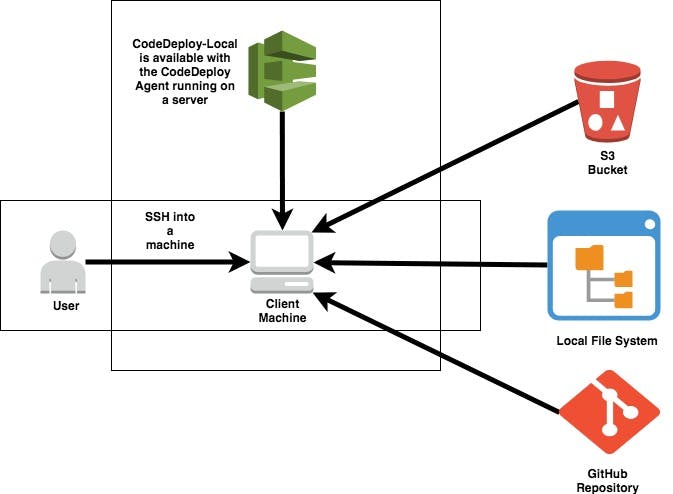
#Advantages
Some of the core features of AWS CodeDeploy are following:
- Quick and Easy Adoption: It is language and platform agnostic and requires significantly less application refactoring - but very customizable.
- Consistent Deployment: Fast, consistent and reliable automated software deployments across development, test and production environments.
- Portability: Easy to export the framework to another service outside AWS.
- Hybrid ready: Coordinate and update between AWS and on-premises instances using Deployment Groups.
The portability and customization could be a reason to choose CodeDeploy over an all-inclusive management tool like Elastic Beanstalk.
#Disadvantages
- Multi-tier apps: Each service/application requires separate Deployment Groups.
- Group deployment: One cannot set the deployment order when running multiple deployments and may need to create separate deployment groups.
- Usability: The UI of the console and usability is not very straightforward and may have a steeper learning curve.
#Amazon Elastic Container Service (ECS)
Amazon Elastic Container Service (ECS) is a fully managed container orchestration service that supports Docker containers. It is high performance, fully scalable service so that you do not have to manage the infrastructure or scalability, etc.
Through ECS, you can schedule, monitor, and scale your containers easily. It supports built-in integration with AWS services like AWS load balancers, CloudWatch, IAM, etc.
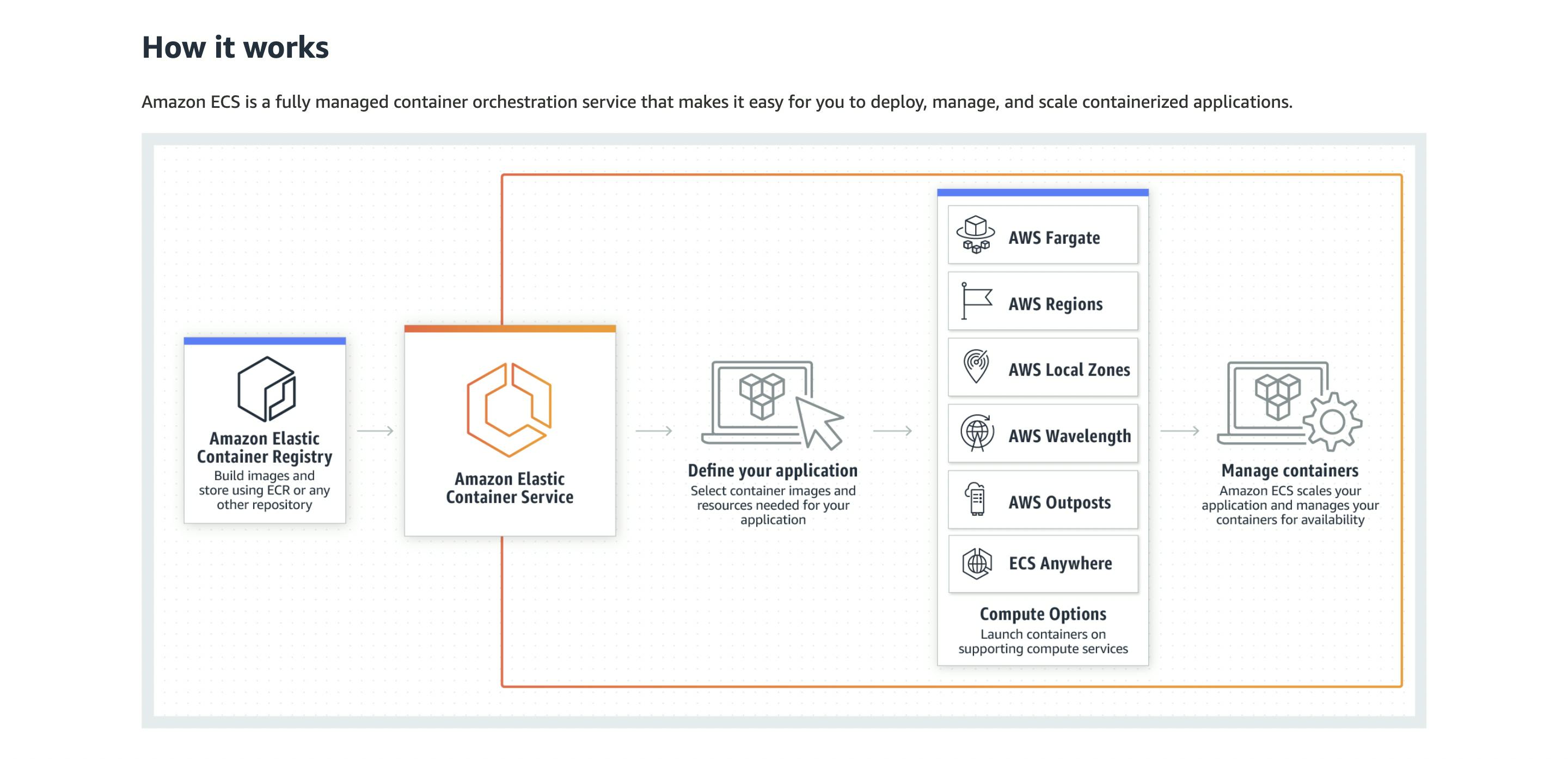
#Advantages
Here are some of the salient features of Amazon ECS:
- Cost-efficient: Scheduling multiple containers on the same node achieves high density on EC2 with its out-of-the-box features and can be cost-efficient if you have some existing automation.
- Security: EC2 Container Registry and ECS together make your applications secure.
- Elastic: It automatically scales the application according to the requirement of servers.
- Pricing: You pay only for the AWS resources, ECS being cost-free.
#Disadvantages
Following are some of the reasons you might not choose Amazon ECS:
- Vendor lock-in issue: ECS is an AWS proprietary technology, so no portability to other cloud providers. For long-term use, you might face a vendor lock-in issue.
- Outgrowing: There is a possibility you can outgrow ECS as your apps and services expand. Keep the services agile enough to switch cloud services if necessary.
- Not much community support: Due to its proprietary nature, there is not a lot of community support. If you run into problems and need assistance, you will have to reach out to AWS corporate support.
#Amazon Elastic Kubernetes Service (EKS)
Google originally developed Kubernetes as an open-source system for orchestrating containerized apps. Elastic Kubernetes Service (EKS) is a 'managed Kubernetes service' used to run Kubernetes on AWS without installing or maintaining your Kubernetes nodes or control planes. Amazon offers ECS as an alternative to EKS.
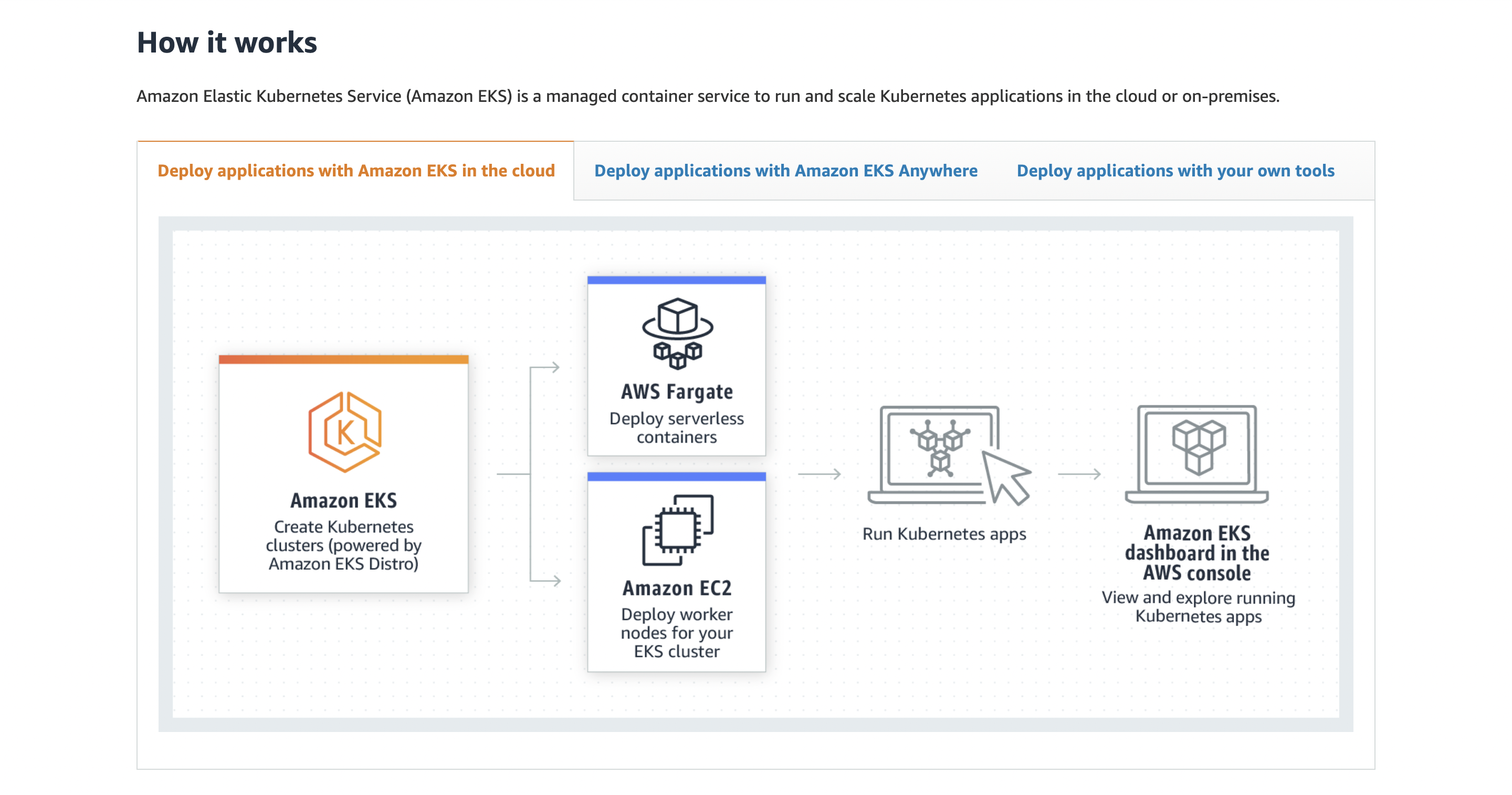
#Advantages
EKS is a powerful tool. Here are some of the reasons why you should be using it:
- Agility: Your workload could be moved to another service easily as it uses Kubernetes when the time comes.
- Control: You get more control over scheduling and cluster management compared to ECS.
- Complexity: EKS gives better control in complex applications.
#Disadvantages
While EKS provides many powerful features, it also comes with a few drawbacks. Here are some of those:
- Cost: ECS is free, while EKS has a charge per instance.
- Complexity: While it is easy to create an EKS cluster, adding and customizing node pools can be complex.
- Not possible to configure the control plane: With each service, you cannot configure the control plane. This limits the operator's ability to turn on/off Kubernetes API features.
#Conclusion
Do you need to decide which deployment service best fits your needs? Here is a summary that will help you evaluate which service is best for you.
- AWS CloudFormation is a good choice for large organizations having diverse infrastructure needs. If you are a startup with a small infrastructure, CloudFormation would be overkill. It also has some learning curves, so it is not the best choice for small companies with limited DevOps resources.
- AWS Beanstalk is equally suitable to startups and large organizations in terms of cost because it only charges for the underlying infrastructure. However, it is one layer of abstraction on top of the actual servers (E.g., EC2). So if you have a team of sysadmins and want granularity of control, then a simple EC2 instance should be preferred over the AWS Beanstalk.
- AWS CodeDeploy is equally suitable for small or large enterprises due to its ability to scale. However, standalone CodeDeploy cannot be integrated with your build process. It must be configured to either a static S3 artifact or a Github URL, although it will not cover the actual build process. It is a deployment tool, not a build tool. So it is better suited to companies that are already using build tools like Jenkins or AWS CodeBuild.
- AWS ECS is more suitable for startups and companies with little or no DevOps knowledge. It is easy to deploy and does not require much operational knowledge to manage deployments and applications on ECS. It is cost-effective as well, so best for small companies.
- AWS EKS is suitable if you are a fast-growing company with large complex container orchestration needs. DevOps knowledge and expertise will require to configure and manage EKS clusters. It is slightly expensive, although it is well worth it, based on its powerful features.
While AWS provides various tools to simplify and automate the provisioning of infrastructure and deployment of applications, using a modern solution like Qovery is more accessible without any mandatory knowledge needed on DevOps/Kubernetes/AWS. It simplifies infrastructure management and deploys apps on AWS easily. Discover Qovery today!
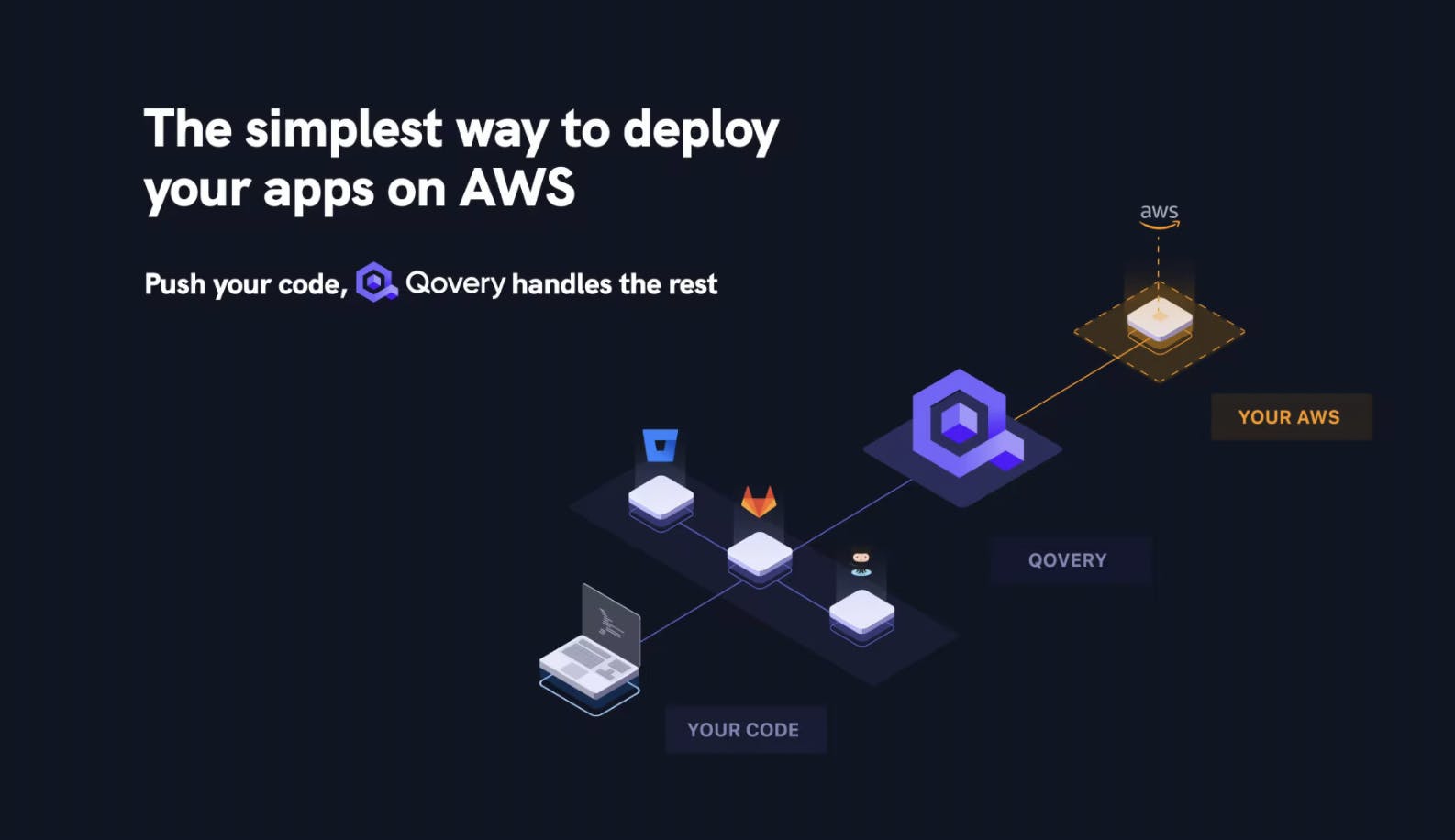
Your Favorite DevOps Automation Platform
Qovery is a DevOps Automation Platform Helping 200+ Organizations To Ship Faster and Eliminate DevOps Hiring Needs
Try it out now!

Your Favorite DevOps Automation Platform
Qovery is a DevOps Automation Platform Helping 200+ Organizations To Ship Faster and Eliminate DevOps Hiring Needs
Try it out now!